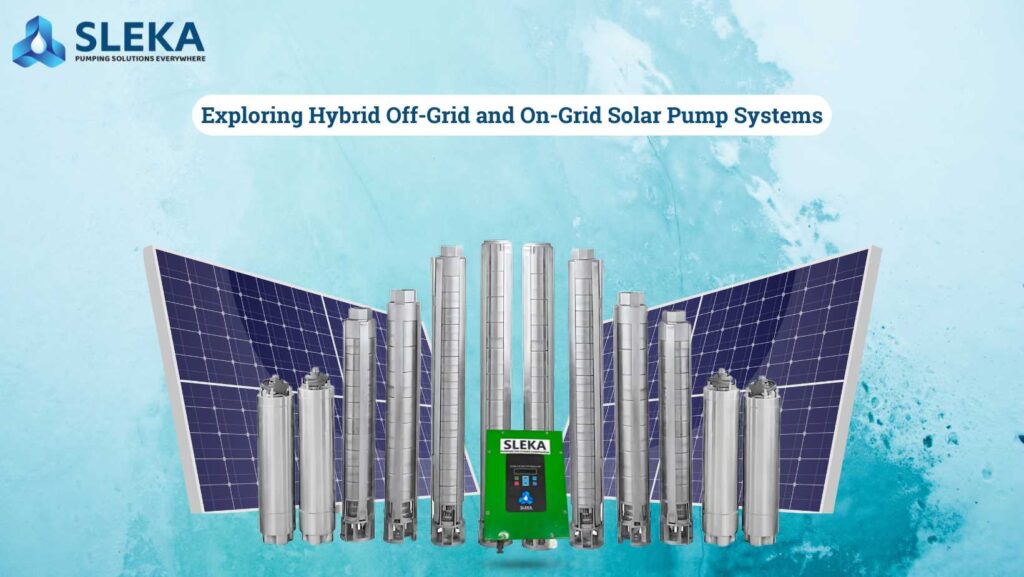7 Essential Tips for Understanding Off-Grid vs On-Grid Pumps
When it comes to water pumping solutions, homeowners and agriculturalists face a crucial decision: should they opt for off-grid or on-grid pumps? This guide will explore the differences between these two types of pumps, providing you with essential insights to make the right choice for your needs. Whether you’re looking for reliable water supply in remote areas or a dependable solution connected to the grid, understanding off-grid vs on-grid pumps is key.
Understanding Off-Grid vs On-Grid Pumps
Off-Grid Pumps are typically powered by alternative energy sources such as solar panels or wind turbines. These systems are ideal for locations where access to electricity is limited or non-existent. In contrast, On-Grid Pumps rely on traditional electrical power from the grid. They are suitable for urban settings where electricity is readily available and can be more cost-effective in the long run due to lower initial investment costs.
Key Differences Between Off-Grid and On-Grid Pumps
- Power Source
- Off-grid pumps utilize renewable energy sources like solar or wind power. This means they can operate independently of the electricity grid, making them perfect for rural areas or during emergencies.
- On-grid pumps depend on electricity supplied by utility companies. They are typically easier to install and maintain since they do not require additional infrastructure for alternative energy sources.
- Installation and Maintenance
- Installing off-grid pumps can be more complex due to the need for solar panels or wind turbines. Regular maintenance of these systems is also necessary to ensure efficient operation.
- On-grid pumps are generally simpler to install, as they connect directly to existing electrical lines. Maintenance is usually limited to the pump itself, which can lead to lower overall upkeep costs.
- Cost Considerations
- The initial investment for off-grid systems can be higher due to the cost of renewable energy equipment. However, they can save money in the long run by eliminating electricity bills.
- On-grid systems have a lower upfront cost but may incur ongoing electricity expenses, which can add up over time.
- Reliability
- Off-grid systems can be highly reliable in remote areas, ensuring water supply regardless of grid outages. However, their performance can be influenced by weather conditions.
- On-grid pumps offer consistent performance as long as there is electricity supply from the grid, making them a dependable option for urban settings.
- Environmental Impact
- Off-grid pumps are environmentally friendly since they rely on renewable energy sources, reducing carbon footprint and dependency on fossil fuels.
- On-grid pumps may contribute to environmental concerns if powered by non-renewable energy sources; however, they can be used in conjunction with green energy options.
Why Choose Sleka for Your Pump Needs?
At Sleka, we specialize in high-quality submersible pumps designed to meet various water supply needs, whether for agricultural use or residential applications. Our submersible pumps are engineered for efficiency and reliability, making them an excellent choice for both off-grid and on-grid setups. With a commitment to quality and customer satisfaction, Sleka provides tailored solutions that ensure optimal water management.
To learn more about our products, visit our product page.
Factors to Consider When Choosing Between Off-Grid and On-Grid Pumps
When deciding between off-grid and on-grid pumps, consider the following factors:
- Location: If you live in a rural area with limited electricity access, off-grid pumps may be your best option.
- Budget: Evaluate your budget for both initial investments and long-term operational costs.
- Energy Source Availability: Assess whether you have access to renewable energy sources like sunlight or wind.
- Water Demand: Consider how much water you need and how often you’ll require pumping.
Conclusion
Understanding the differences between off-grid vs on-grid pumps is essential for making an informed decision that suits your specific needs. Whether you choose the independence of off-grid solutions or the convenience of on-grid options, Sleka’s submersible pumps provide reliable performance tailored to your requirements.
For further information about our submersible pump offerings, please visit Sleka’s product page.
FAQ Section
FAQ #1: What are the benefits of using off-grid pumps?
Off-grid pumps offer independence from the electricity grid, making them ideal for remote locations. They rely on renewable energy sources, which can lead to lower operational costs over time.
FAQ #2: Are on-grid pumps more cost-effective?
On-grid pumps typically have lower initial installation costs and are easier to maintain since they connect directly to existing electrical lines. However, ongoing electricity costs can accumulate.
FAQ #3: Can I use a submersible pump in both off-grid and on-grid applications?
Yes, Sleka’s submersible pumps are versatile and can be effectively utilized in both off-grid and on-grid situations.
FAQ #4: How do I determine which pump is right for my needs?
Consider factors such as location, budget, energy source availability, and water demand when choosing between off-grid and on-grid pumps.
FAQ #5: Where can I learn more about Sleka’s submersible pumps?
Visit Sleka’s website for detailed information about our range of submersible pumps designed for various applications.
In conclusion, knowing the nuances of off-grid vs on-grid pumps empowers you to make an informed decision that best fits your circumstances. For high-quality submersible pumps that deliver reliability and efficiency in any setting, trust Sleka. To explore our offerings further, visit Sleka today!


